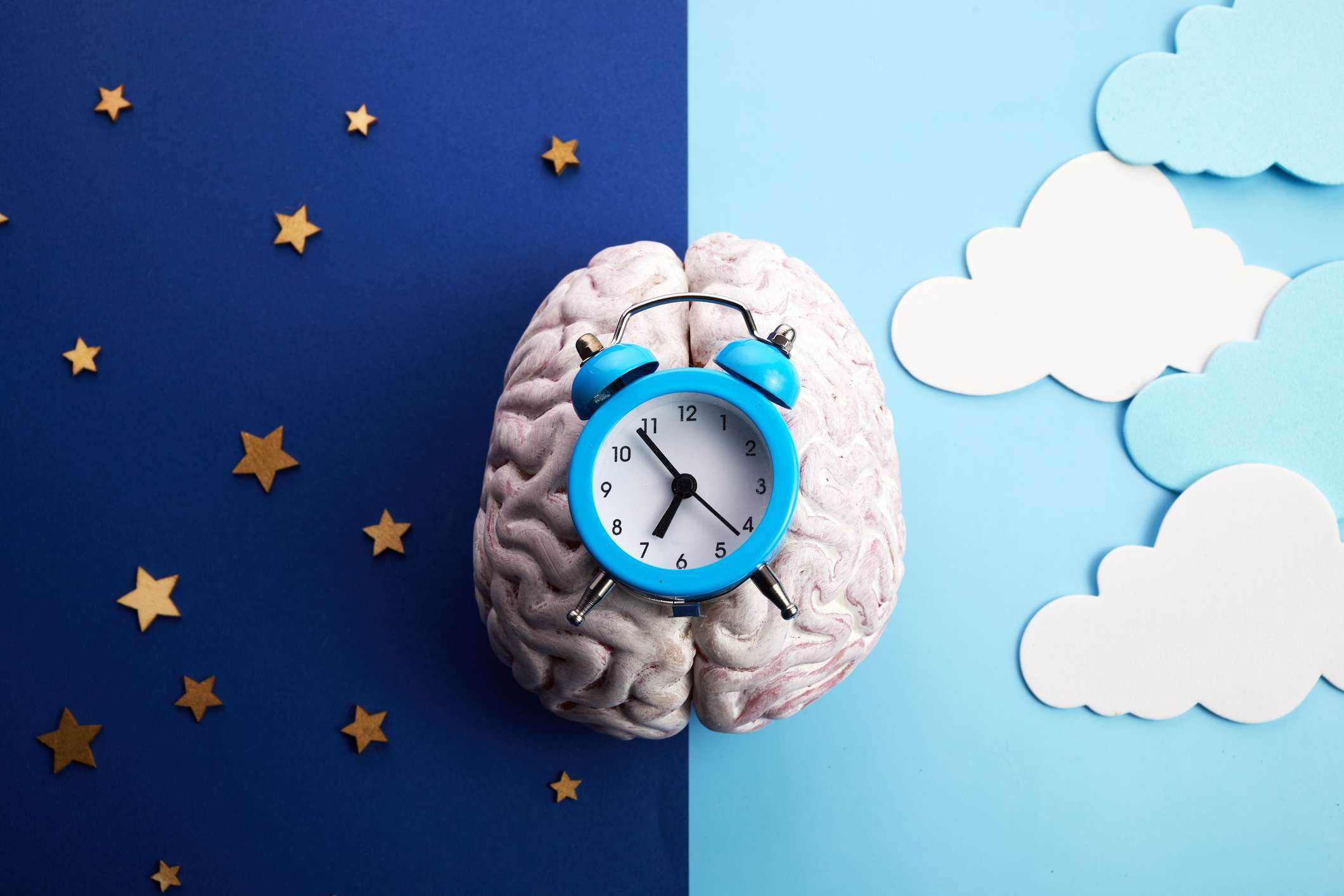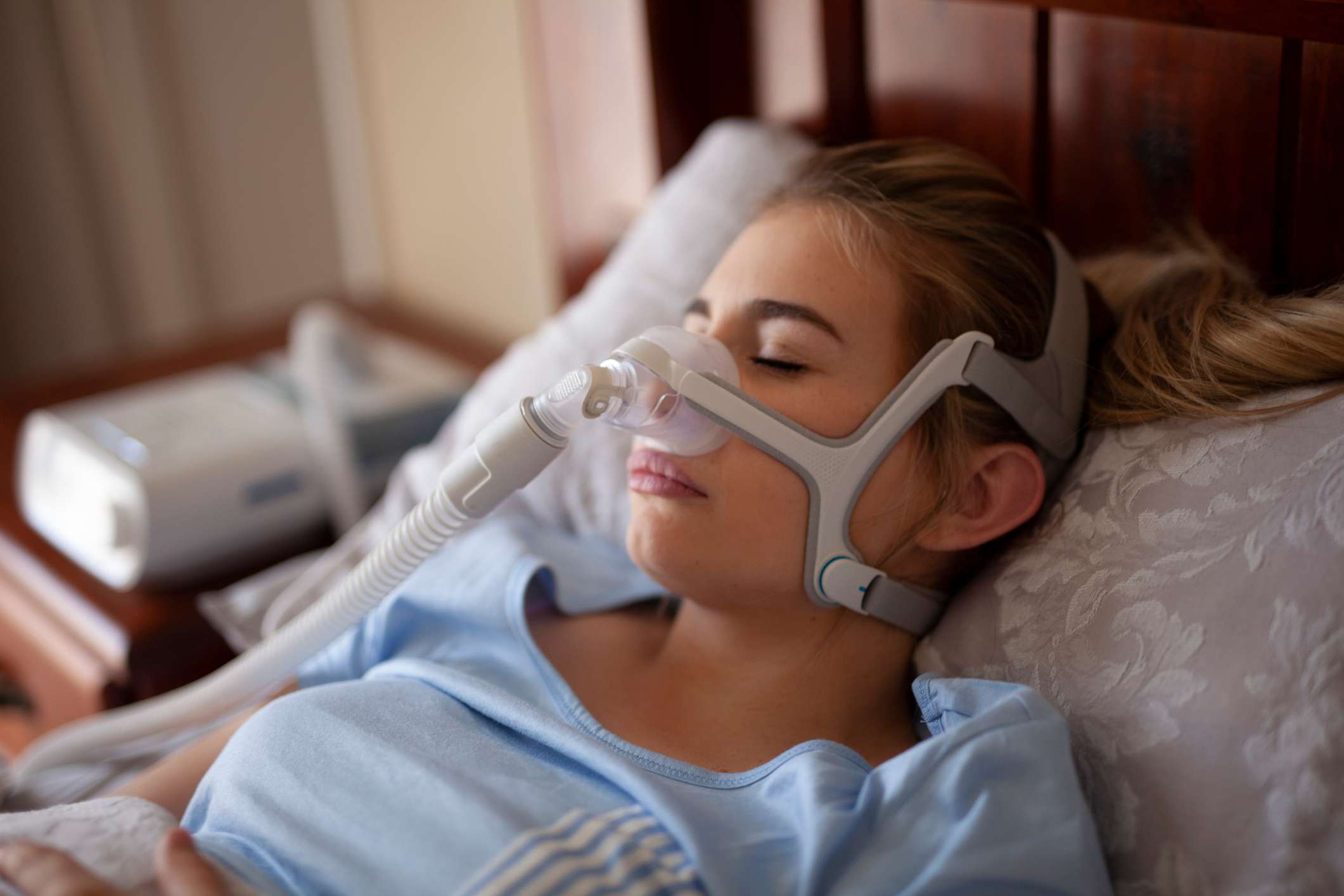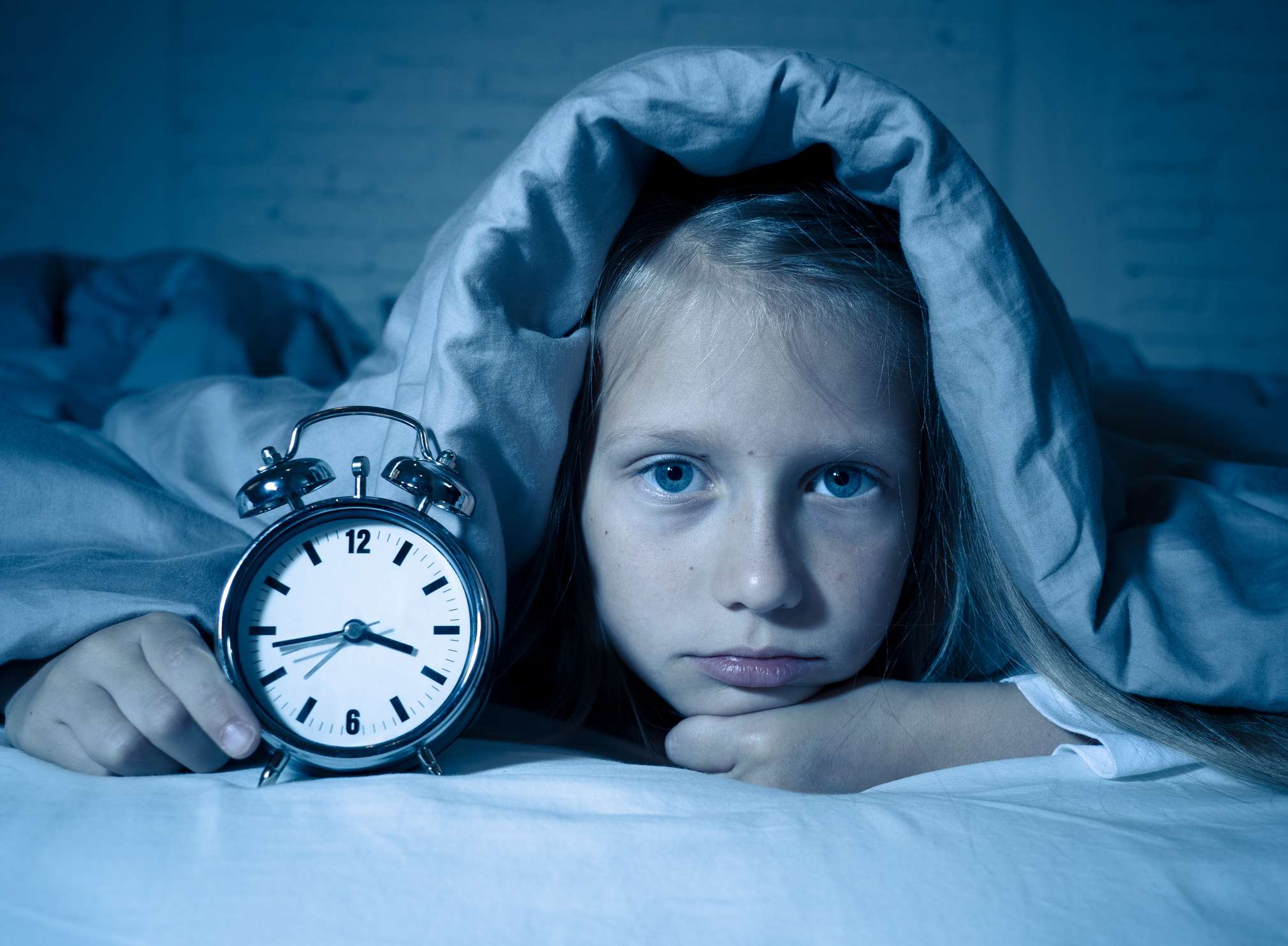How do sleep disorders affect our health?
What does normal sleep behavior look like?
Normal sleep patterns are influenced by many factors, including lighting conditions (day and night), cultural and social factors (shift work, raising children). However, experts agree on one thing: the average adult needs between 7 and 9 hours of sleep, with women needing slightly more than men.
During sleep, we go through several sleep phases in a certain sequence. These are repeated on average 4-7 times per night. A sequence consists of the following four phases:
- Falling asleep phase
- Stable sleep phase
- deep sleep phase
- REM sleep phase
Each individual phase is important and significant for our body and our health.
In the deep sleep phase, the body recovers. Impressions are processed and stored in our memory. Experts believe that the deep sleep phase is very important for learning.
The REM sleep phase stands for "Rapid Eye Movement" and is characterized by jerky eye movements. Interestingly, all other muscles in the body are completely relaxed during this phase - except for the eye muscles. The REM phase is also responsible for our dreams. As this phase is the last one before waking up, we can still remember the dream when we wake up. Because we go through all these sleep phases several times during the night, we dream not just once, but several times during sleep. However, we can only remember the last dream before waking up because we have already forgotten the others.
The physiological processes in the body also change during sleep. For example, our heartbeat slows down in the first three phases of sleep and our blood pressure drops. In the last phase of sleep, however, the heartbeat speeds up and blood pressure rises again. The hormone system also works at full speed and ensures the release of growth hormones. This is how our organs and muscles recover. While we sleep, more white blood cells circulate through the blood. This confirms the old adage that we should sleep a lot when we are ill. But the metabolism also works diligently during the night. When the night comes to an end and we wake up, more stress hormones are released.

Sleep disorders and problems
There are six known sleep disorders in medicine. However, there are only a few causes: either the total amount of sleep hours is too low/high, or it is a matter of poor sleep quality, as is the case with sleep apnoea, for example, where breathing stops repeatedly and we therefore wake up more often during the night. The 6 sleep disorders include
Snoring:
Snoring causes a drop in muscle tension, which can lead to constriction of the upper airways. This can be facilitated by the tongue sinking back.
If there is not only a narrowing of the upper airways, but even a brief closure (of more than 10 seconds), the oxygen content in the blood drops dramatically and the body is put into an alarm state, causing sufferers to wake up briefly. This causes the muscle tone to rise again and breathing normalizes. Such respiratory arrests can occur up to several hundred times per night. The problem is that those affected are not consciously aware of waking up and are then very tired the next day and do not know why.
Central respiratory disorder:
In diseases of the nervous system, as well as when staying at altitudes above 3000 meters and shortness of breath in severe heart disease, there may be a change in breathing rhythm or depth. This can also lead to long pauses in breathing which, as with obstructive sleep apnoea, can result in tiredness.
Sleepwalking (somnambulism):
In sleepwalking, sufferers often get up during the deep sleep phase and start to wander around. The dangerous thing about this is that people can also open windows and doors or walk long distances and seriously injure themselves in the process.
Fighting dreams:
Fighting dreams involve abnormal muscle activity during the REM sleep phase. As mentioned above, normally only the eye muscles are active during the REM sleep phase. This is not the case with fighting dreams. Ranting, boxing or kicking may occur. Falling out of bed is also not uncommon. This can lead to serious injuries, not only for those affected, but also for their bed partners.
Restless legs syndrome is characterized by sufferers experiencing an unpleasant urge to move their legs, which keeps them awake at night.

Sleep disorders in children
Children and adolescents need more sleep than adults. If the duration of sleep is too short or the quality is too poor, this can lead to physical and mental developmental disorders. Depending on age, various problems can be the cause. Especially in the 1st year of life, the day-night rhythm must first be established. This can often lead to waking up at night. In toddlers and preschoolers, problems falling asleep and sleeping through the night are often the main problems. From school age onwards, psychological factors can also influence sleep. These include pressure to perform, excessive demands and anxiety. Short sleep times are often the main problem for teenagers, which can be facilitated by social media.
It is important to note that sleep problems can be particularly common in childhood and adolescence. However, these problems usually disappear on their own. If this is not the case, a specialist in pediatrics and adolescent medicine is the first point of contact. If necessary, they will refer you to a sleep specialist.

Health consequences of sleep disorders
Experts agree that sleep disorders have health consequences. Both too little and too much sleep, problems falling asleep and staying asleep can cause depression. The worst affected age groups are 30-44 and 45-59.
Sleep problems can also increase the risk of obesity. It should be noted that sleep problems do not directly increase weight, but indirectly by increasing appetite hormone levels and influencing food choices. Although the body consumes more calories when sleep deprived (approx. 100 kcal more per day), it also increases calorie intake (approx. 250 kcal more per day). This in turn results in a positive energy balance. Sleep problems influence our cognitive abilities when choosing what to eat and how much we eat.
The health consequences in terms of cardiovascular diseases, type 2 diabetes mellitus and neurological diseases are more controversial. No clear answer can be given here. In general, however, it can be assumed that sleep problems of any kind can lead to health problems.

When do I need to see a doctor with sleep problems?
Sleeping problems are part of everyday life. If they occur occasionally, they are no cause for concern. It is common knowledge that people sleep badly after drinking alcohol, but this is not a sleep disorder per se if it only happens from time to time. In the same way, new parents do not suffer from a sleep disorder if they are woken up frequently during the night for the first few weeks after the birth of their child.
It is only considered a sleep disorder if it occurs at least three times a week and lasts for at least a month. A further criterion is if the unsatisfactory sleep causes distress and has a negative impact on social and occupational performance. More than 50% of patients suffering from a sleep disorder have an underlying psychological or physical impairment. These include bronchial asthma, allergies, anxiety disorders, urological complaints and many more. The first point of contact for those affected is usually their family doctor. They will assess the extent of the sleep disorder and refer the patient to a specialist if necessary. Drug therapy may be sufficient, further clarification in a sleep laboratory may be helpful or treatment by a psychologist or psychiatrist may be necessary.
A key characteristic of sleep problems is increased sleepiness during the day. If you feel completely exhausted and tired during the day despite getting enough sleep, sleep problems at night could be the cause. However, bed partners can often also provide revealing clues that make it easier to diagnose sleep disorders.

What can I do myself if I have difficulty sleeping?
Not all sleep problems need to be clarified by a doctor immediately. Some can go away on their own, others can be eradicated by following various tips.
Helpful tips for healthy sleep
- No large meals should be eaten or alcohol consumed three hours before going to bed. Going to bed hungry should also be avoided.
- Regular bedtimes and daily sleep rituals promote healthy sleep and can be practiced with pleasure.
- Sleeping too long or too short can also cause sleep disorders.
- Bright light should be avoided or reduced to a minimum. This also includes light from screens such as cell phones, TVs and computers.
- Sounds and noise can prevent you from sleeping. If possible, the bedroom should be the quietest place.
- The bed, slatted frame and mattress are also often underestimated. They make a significant contribution to healthy and restful sleep.
- Midday naps should be avoided if possible, or last a maximum of 30 minutes.
- Exercise and sport during the day can also contribute to sleep quality, as long as it is not done just before bedtime. In this case, they would be rather detrimental.

Conclusion
Sleep is not only important, but necessary for maintaining our body's daily functions. During sleep, our body recharges its batteries and regenerates itself in order to be fully functional again the next day. Sleep problems can therefore have a very negative impact on our health and lead to serious secondary illnesses. But not every sleepless night is also a sleep disorder. The problems often disappear on their own or can be "treated" using the tips mentioned above. However, if symptoms persist, a doctor should always be consulted so that any sleep disorders can be treated at an early stage and the quality of life can be improved again.
Sources
- Chaput JP, Dutil C, Featherstone R, Ross R, Giangregorio L, Saunders TJ, Janssen I, Poitras VJ, Kho ME, Ross-White A, Zankar S, Carrier J. Sleep timing, sleep consistency, and health in adults: a systematic review. Appl Physiol Nutr Metab. 2020 Oct;45(10 (Suppl. 2)):S232-S247. doi: 10.1139/apnm-2020-0032. PMID: 33054339.
- Chaput JP, McHill AW, Cox RC, Broussard JL, Dutil C, da Costa BGG, Sampasa-Kanyinga H, Wright KP Jr. The role of insufficient sleep and circadian misalignment in obesity. Nat Rev Endocrinol. 2023 Feb;19(2):82-97. doi: 10.1038/s41574-022-00747-7. Epub 2022 Oct 24. PMID: 36280789; PMCID: PMC9590398.
- Chaput JP, McHill AW, Cox RC, Broussard JL, Dutil C, da Costa BGG, Sampasa-Kanyinga H, Wright KP Jr. The role of insufficient sleep and circadian misalignment in obesity. Nat Rev Endocrinol. 2023 Feb;19(2):82-97. doi: 10.1038/s41574-022-00747-7. Epub 2022 Oct 24. PMID: 36280789; PMCID: PMC9590398.
- AOK-Bundesverband eGbR – Arbeitsgemeinschaft von Körperschaften des öffentlichen Rechts
- Stiftung Gesundheitswissen
- Bundesministerium für Soziales, Gesundheit, Pflege und Konsumentenschutz (BMSGPK)
- Bundesministerium für Soziales, Gesundheit, Pflege und Konsumentenschutz

Thomas Hofko
Last updated on 12.04.2024
Your personal medication assistant
Browse our extensive database of medications from A-Z, including effects, side effects, and dosage.
All active ingredients with their effects, applications, and side effects, as well as the medications they are contained in.
Symptoms, causes, and treatments for common diseases and injuries.
The presented content does not replace the original package insert of the medication, especially regarding the dosage and effects of individual products. We cannot assume liability for the accuracy of the data, as the data has been partially converted automatically. Always consult a doctor for diagnoses and other health-related questions.
© medikamio